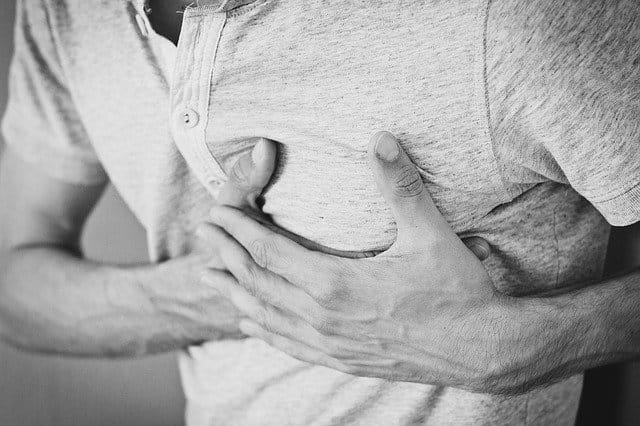Alcohol addiction is a progressive disease.
If it’s not caught and treated as soon as possible, it will only get worse.
In severe cases, it could lead to end-stage alcoholism and even death – alcohol caused 7912 deaths in England during 2022 alone. [1]

End-stage alcoholism is the final stage of alcohol addiction.
By this point, many people are struggling with physical and mental health disorders caused by alcohol.
This may include heart disease, depression and liver disease. Some of these problems can be life-threatening.
It’s also likely that they will also have experienced other problems in their life due to alcohol addiction.
Many people in end-stage alcoholism have become isolated from friends and family, struggle to maintain a career and may have financial issues.
Despite these issues, they continue to drink heavily as they have a severe physical and psychological addiction to alcohol.

Sometimes the line between alcohol addiction and end-stage alcoholism can be difficult to distinguish.
Knowing the symptoms of end-stage alcoholism [2]can potentially save your life, as they are all a sign that you need professional help and treatment.
One of the most dangerous symptoms of end-stage alcoholism is liver damage, as the liver is no longer able to efficiently process large amounts of alcohol.
Many people in end-stage alcoholism do not eat a healthy diet, instead getting most of their calories from alcohol.
This can lead to malnutrition as they are not receiving any essential vitamins and nutrients.
A lot of people at this stage have completely isolated themselves from other people.
This may be due to conflict or simply the shame that comes with alcohol addiction.
It’s common to suffer from gastrointestinal issues such as nausea, ulcers and irritable bowel symptoms when you are in end-stage alcoholism, as alcohol irritates the stomach lining.

People in end-stage alcoholism are at greater risk of heart failure and stroke, as excessive alcohol consumption raises your blood pressure.
If you are addicted to alcohol and have been struggling with memory issues and general coordination problems, this can be a sign of end-stage alcoholism.
You may find that you are becoming ill more frequently than usual, as alcohol weakens your immune system.
It may take longer to recover from infections and viruses if you are in end-stage alcoholism.
Many people in end-stage alcoholism sleep extremely poorly, leaving them in a constant state of tiredness and fatigue.

If you are in end-stage alcoholism, you may notice signs of liver damage.
This means that after years of heavy drinking, your liver is now struggling to function correctly.
Early signs of liver damage from an alcohol addiction include:
If you have noticed any of the above signs, seek help immediately.
Liver damage from alcohol can usually be reversed, but you will need to check into a rehab clinic to detox safely.

No one goes straight from their first drink to end-stage alcoholism.
This disease progresses in stages, from the occasional drink with friends to full-blown addiction.
Many people who drink alcohol are at this stage, and it doesn’t always lead to addiction.
Social drinking involves casually having a few drinks when out with friends, without the goal of becoming intoxicated but not in a particularly dangerous way.
For any people, their experience with alcohol will stay at this social level.
Binge drinking involves consuming large amounts of alcohol, with the primary goal of getting drunk.
24% of adults in the UK report binge drinking on a regular basis, which means they drink more than the recommended amount of 14 units a week in just a single sitting. [3]
Not everyone who binge drinks will progress to the next stage of alcoholism, but it can be a predictor.

Heavy drinking is when someone begins to drink large amounts of alcohol on a regular basis, even when they are alone.
They may enjoy the way alcohol makes them feel and begin to drink it during the week or feel that they need to drink in social settings.
As alcohol can cause physical changes in the brain, heavy drinkers may develop alcohol dependency.
They may feel that they need alcohol to function normally and may experience withdrawal symptoms such as shaking and nausea if they do not drink.
The dependency has now progressed into an alcohol addiction.
The person may drink alcohol even if it has negative consequences, such as job loss or financial issues.
At this stage, the person has developed a number of physical and mental health issues due to their alcohol addiction and may be isolated from their loved ones.
They need immediate medical treatment, as this stage can easily lead to death.

If you are concerned about your relationship with alcohol and want to know which stage of alcoholism you may be at, we can help.
The best way to tell the difference between the stages of alcoholism is to speak to a medical professional.
They may administer a series of tests to determine how severe your addiction is and will then be able to give you a diagnosis.
It is not recommended to self-diagnose, as you may believe your addiction to be less severe than it really is and therefore delay seeking treatment.

While end-stage alcoholism itself is not a specific diagnosis, a doctor will be able to diagnose you with a severe alcohol addiction.
They can do this by administering one or more tests that are designed to pick up on the signs of addiction.
The most common way to diagnose an alcohol addiction is by using the Diagnostic and Statistical Manual of Mental Disorders (DSM-5), which is a book that contains information on all known mental health disorders.
The DSM-5 contains a list of 11 criteria that can indicate an alcohol addiction.
If you have six or more of these symptoms, you will likely be diagnosed with a severe alcohol addiction.

Being told you are in end-stage alcoholism is not a death sentence.
While your alcohol addiction may have wreaked havoc on your body and brain, causing a range of physical and mental health problems, in most cases you will still be able to recover.
If you truly want to heal from your addiction and work hard towards recovery, it is usually possible no matter what stage of addiction you are in.
However, you will almost certainly need to check into an inpatient rehab clinic that specialises in treating alcohol addiction.
Never try to recover from an alcohol addiction by yourself, particularly end-stage alcoholism.
Your body may struggle to cope with the withdrawal symptoms and in severe cases, this attempt at recovery could result in death.
People with end-stage alcoholism are more likely to suffer from a condition called delirium tremens when they attempt to stop drinking alcohol.
This can cause seizures, respiratory failure and heart problems.
When you attend inpatient rehab, staff can give you specific medications to reduce the risk of experiencing these symptoms and provide immediate medical attention if needed.

It can be frightening to be told you are in end-stage alcoholism, but there are several ways that you and your loved ones can cope with this news.
If you have been in denial about your unhealthy relationship with alcohol, this could be a wake-up call.
You will likely be dealing with physical and mental health issues at this point, many of which can be improved or even reversed if you seek treatment.
End-stage alcoholism doesn’t have to be permanent.
If you can reach out to a trusted friend or family member, a doctor or even a rehab clinic, you’ve then taken the first step towards recovery.
A simple way to get started is to call Rehab 4 Addiction on 0800 140 4690 – we can put you in touch with a rehab clinic that specialises in treating and helping people like you who are in end-stage alcoholism.
It can be very difficult to watch a loved one struggle with an alcohol addiction, particularly when they get to end-stage alcoholism.
Seeing them deal with the physical and mental effects of alcohol addiction is devastating, and it’s common to want to do anything you can to help.
While you can’t force someone to recover if they don’t want to or aren’t ready, you can organise an intervention to give them an extra push towards recovery.
This is an opportunity to tell them how concerned you are and give them options for rehab and treatment.
Not everyone responds well to an intervention, and it can be helpful to use a professional interventionist for the best chance at persuading your loved one to seek help.

Alcohol addiction can sneak up on you over the years, and many people are not even aware that they have a problem.
Symptoms of an alcohol addiction may include:
It can also be helpful to look at how much alcohol you drink to see if it exceeds the recommended levels.
According to the NHS, drinking more than 14 units of alcohol a week on a regular basis is considered excessive.
You may be drinking more than you think – for example, one bottle of beer is 1.7 units while a standard glass of white wine is 2.1 units. [4]
If you have been addicted to alcohol for many years and have developed additional physical and mental health problems due to your alcohol consumption, you may be in the later stages of alcoholism.
In severe cases, you may be in end-stage alcoholism.
It’s important to speak to a doctor and receive a professional diagnosis. This will help you to get the right treatment and support, allowing you to slowly cut down on your alcohol intake safely.

As each person’s body deals with alcohol and addiction differently, there is no standard life expectancy for someone with an alcohol addiction.
However, there have been some studies conducted to see whether an alcohol addiction can shorten your life.
Sadly, in most cases, the answer is yes.
One study examined a group of people who had been hospitalised due to their alcohol addiction. [5]
They found that these people had an average life expectancy of 47-53 years for men and 50-58 years for women, which is much shorter than the rest of the population.
Additionally, the study found that people who have been hospitalised for alcohol addiction would on average pass away 24-28 years earlier than people without a substance use disorder.
These alarming figures highlight how important it is to seek help for any type of addiction as soon as possible – in many cases, you can turn things around before you reach end-stage alcoholism.

You can still work towards recovery even if you have been diagnosed with end-stage alcoholism.
The most important thing to remember is that you are not alone. No matter how severe your addiction is, you can still take steps to heal your mind and body as much as possible.
Rehab 4 Addiction can help you take the first step.
Call us on 0800 140 4690 for free and confidential advice – we can assess you over the phone and use this information to find a rehab clinic that can treat your addiction.
Some rehab clinics in the UK specialise in treating people with severe and end-stage alcoholism, and we can put you in touch with them.
All you need to do is make that phone call.
[2] https://www.verywellmind.com/end-stage-alcoholism-3969480
[3] https://www.gov.uk/government/publications/the-public-health-burden-of-alcohol-evidence-review
[4] https://www.nhs.uk/live-well/alcohol-advice/calculating-alcohol-units/